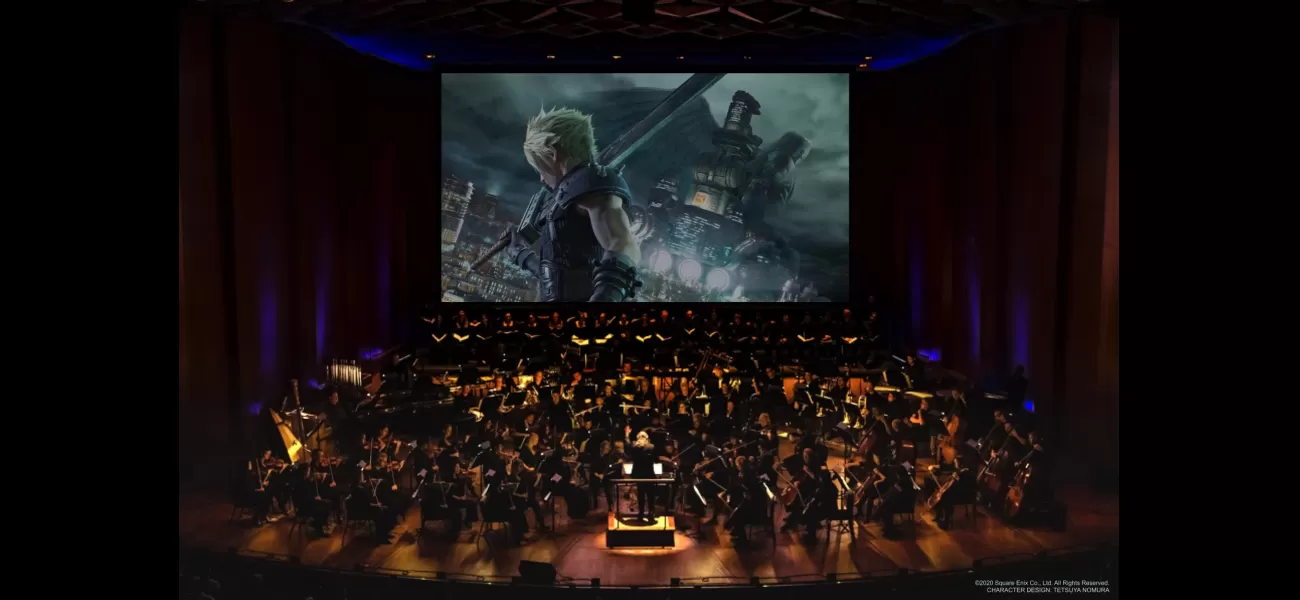Video games have seen a decrease in musical quality, leading to a sonic regression.
Modern video game music is technically proficient but lacks creativity and complexity.
October 7th 2023.

Video game music has long been an integral part of our gaming experiences, setting the tone and creating memorable moments. Unfortunately, in recent years, there has been a noticeable decline in the quality and impact of game music.
One key factor that contributes to this decline is the shift towards more generic and formulaic compositions. Many modern games focus on safe, repetitive, and uninspiring musical scores, rather than music that leaves a lasting impression. Examples of this can be seen in the evolution of the Final Fantasy series. While older titles like Final Fantasy 7 and Final Fantasy 9 featured memorable compositions by Nobuo Uematsu, recent entries like Final Fantasy 15 and Final Fantasy 7 Remake have music that, while technically proficient, lacks the same depth and emotional impact.
The same applies to the Call Of Duty franchise. In the earlier instalments, the series featured iconic and evocative themes, such as the haunting Call Of Duty 4: Modern Warfare main theme. In contrast, recent entries in the series seem to prioritise bombastic soundscapes that prioritise action over emotional depth, making the music forgettable in comparison.
The overreliance on licensed music in games has also become a pervasive trend. Rather than investing in original compositions that enhance the game’s narrative and atmosphere, many developers opt to license popular songs. This approach can work well in some cases, but often results in a disjointed experience, where the music feels disconnected from the game world. Grand Theft Auto 5 is a prime example of this, with its reliance on licensed tracks rather than memorable original compositions like those found in earlier Grand Theft Auto titles.
Another issue contributing to the decline is the prioritisation of technical advancements over musical artistry. As games become more graphically sophisticated, there is a risk that music is treated as an afterthought. The emphasis on creating lifelike visuals and complex gameplay mechanics can overshadow the need for an equally immersive musical score. Games like Cyberpunk 2077 faced criticism for their rushed development, resulting in a soundtrack that did not live up to the game’s ambitious world-building.
Finally, the prevalence of money grabbing microtransactions and casual mobile gaming have changed the industry’s priorities. Games designed for mobile devices often prioritise short, repetitive loops of music that are designed to be catchy but not necessarily musically rich. This trend has spilled over into mainstream gaming, where quick hooks and repetitive melodies have become more common.
As gamers and music enthusiasts, it is essential to recognise the importance of music in enhancing our gaming experiences and advocate for a return to the artistry and innovation that once defined the medium. Only then can we hope to recapture the magic of game music’s golden era, such as with the Final Fantasy 7 Remake Orchestra World Tour, where modern game music is brought to life in the flesh.
One key factor that contributes to this decline is the shift towards more generic and formulaic compositions. Many modern games focus on safe, repetitive, and uninspiring musical scores, rather than music that leaves a lasting impression. Examples of this can be seen in the evolution of the Final Fantasy series. While older titles like Final Fantasy 7 and Final Fantasy 9 featured memorable compositions by Nobuo Uematsu, recent entries like Final Fantasy 15 and Final Fantasy 7 Remake have music that, while technically proficient, lacks the same depth and emotional impact.
The same applies to the Call Of Duty franchise. In the earlier instalments, the series featured iconic and evocative themes, such as the haunting Call Of Duty 4: Modern Warfare main theme. In contrast, recent entries in the series seem to prioritise bombastic soundscapes that prioritise action over emotional depth, making the music forgettable in comparison.
The overreliance on licensed music in games has also become a pervasive trend. Rather than investing in original compositions that enhance the game’s narrative and atmosphere, many developers opt to license popular songs. This approach can work well in some cases, but often results in a disjointed experience, where the music feels disconnected from the game world. Grand Theft Auto 5 is a prime example of this, with its reliance on licensed tracks rather than memorable original compositions like those found in earlier Grand Theft Auto titles.
Another issue contributing to the decline is the prioritisation of technical advancements over musical artistry. As games become more graphically sophisticated, there is a risk that music is treated as an afterthought. The emphasis on creating lifelike visuals and complex gameplay mechanics can overshadow the need for an equally immersive musical score. Games like Cyberpunk 2077 faced criticism for their rushed development, resulting in a soundtrack that did not live up to the game’s ambitious world-building.
Finally, the prevalence of money grabbing microtransactions and casual mobile gaming have changed the industry’s priorities. Games designed for mobile devices often prioritise short, repetitive loops of music that are designed to be catchy but not necessarily musically rich. This trend has spilled over into mainstream gaming, where quick hooks and repetitive melodies have become more common.
As gamers and music enthusiasts, it is essential to recognise the importance of music in enhancing our gaming experiences and advocate for a return to the artistry and innovation that once defined the medium. Only then can we hope to recapture the magic of game music’s golden era, such as with the Final Fantasy 7 Remake Orchestra World Tour, where modern game music is brought to life in the flesh.
[This article has been trending online recently and has been generated with AI. Your feed is customized.]
[Generative AI is experimental.]
0
0
Submit Comment





